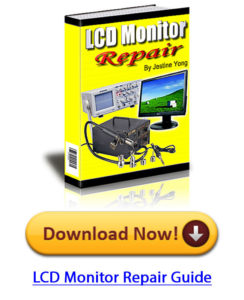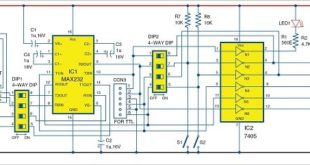Nucleus Vision is an Internet of Things (IoT) and Blockchain based customer identification company that allows brick-n-mortar retailers to identify any customer who walks into a store, in real-time, using Nucleus’ proprietary ION sensor technology.
Abhishek Pitti, Founder & CEO, Nucleus Vision, in an interaction with EFY bureau, talks about the IoT market, deployment of IoT in India, Nucleus Vision’s IoT business, its unique proposition and a lot more.
Excerpts:
Q. Many opine that IoT is just a buzzword that industry Gurus have coined to create hype? Do you agree with that line of thought? Or do you feel that IoT is opening an entirely new market?
Referring to Internet of Things (IoT) as just another buzzword is to undermine the revolutionary technology. It is an invention that aims to improvise our lives by enhancing the most common items that we use every day. IoT has received investments from giants such as Google, Apple and even Amazon.
With increasing advancements in the technology, IoT is opening up entirely new markets. For example, Nucleus Vision is harnessing the potential of IoT, combined with blockchain, to bring new capabilities to the retail sector. Soon, retailers around the world will be offering a customer-centric shopping experience enabled by IoT innovations such as Nucleus Vision.
Beyond retail, IoT has tremendous potential in a variety of industries. The technology can also greatly benefit industries such as manufacturing, healthcare, automotive, supply chain and smart buildings, to name a few. By enabling everyday devices and traditional machinery to become connected, you are able to leverage the data and insights gained to optimise processes, generate higher cost savings, and strategically identify new features based on real usage data.
Q. In your opinion, is the Government of India (GoI) playing any significant role in expanding the IoT market right now, and if so, how?
The Indian government has definitely recognised the potential to establish a new IoT-powered ecosystem in order to better serve its citizens. While IoT has already been successfully applied in private industry, the public sector is laying the groundwork for future innovation. While many industries are already benefiting from IoT, there is a huge potential in the country. For example, Smart Cities initiative aims to invest US$ 1 billion to meet the needs of rapidly expanding population in urban areas. This investment is steadily fueling IoT adoption across multiple industries. The IoT industry in India is expected to turn into a market of US$ 9 billion by 2020, with 2 billion connections across the country.
Q. What are your expectations from the GoI in terms of the initiatives they should take to make India an IoT-superpower?
The Government of India has been doing some rather impressive work, when it comes to technological development. NITI Aayog, the policy think tank of the government, has partnered with tech industry giants, including Microsoft, Google, IBM, ABB, and Intel to leverage the IoT and AI-based solutions. It is also advancing the implementation of blockchain in order to find solutions to the nation’s most pressing problems.
To reach the goal of making India an IoT superpower, the GoI essentially needs to keep doing what they are already doing. The initiatives that they fund and the partnerships with industries in this area are steadily developing a base for these technologies to take off in India. For instance, NITI Aayog’s partnership with Oracle to push the use of IoT and blockchain to combat counterfeit drugs.
In addition to implementation, it is critical to develop a pool of talented individuals, who know how to develop and use these new technologies. NITI Aayog has been partnering with educational institutions to recruit and develop talented technologists who can match global standards. Its support for programmes, competitions and other opportunities created by tech-savvy companies is also crucial. The government’s support for platforms like the International Blockchain Congress, an assembly of blockchain and blockchain-related technology enthusiasts, and Genesis Hack, a hackathon aimed at bringing out the best blockchain developer talent from the country, further encourages the development of technology.
Q. Are you satisfied at the rate of deployment of IoT solutions in India?
Since 2017, India has held 43 per cent share of the global IoT market, which is growing at a steady rate. By 2020, the country is expected to be an IoT leader with US$ 9 billion in market value. This growth spans multiple industries such as transportation, logistics, automotive, healthcare and manufacturing. Part of the reason for this growth in deployment is the rise of new IoT-centric incubators and accelerators. Both the government and private sector are contributing in deployment of IoT. The government’s aim to make the industry worth US$ 15 billion by 2020, and emerging centres of excellence (CoEs) for IoT-based solutions in India are paving the way for a futuristic deployment of technology.
Q. How do you see the IoT market evolving in the next two to three years?
IoT will evolve as quickly as new use cases are conceptualised and put into development. IoT will undoubtedly continue to optimise, innovate and transform businesses as well as consumer products. Multiple industries will implement this technology to create better experiences and processes. While manufacturing and automotive industries are current examples of large-scale IoT implementation, the Indian agricultural and retail sectors will also benefit in the near future. There are also vast opportunities in healthcare and supply chain management, where IoT can improve system structures.
Q. Which industry segments do you believe will drive the largest demand and why?
In the Indian context, I think it’s the retail sector. India’s retail industry is inviting large investments and technological advancements. The retail industry thrives on customer data, but there is currently a lack of integration when it comes to using the data in multiple value streams.
However, with the help of IoT and artificial intelligence (AI), the Indian retail industry can tackle this problem. IoT offers an improved inventory management and a personalised experience for shoppers, which helps boost the sales for the retailers. It opens up innovative business models such as smart shelves and digital signage. These enhanced capabilities could represent as much as US$ 340 billion in additional revenues. With the advancements being made, our research indicates that as many as 53 per cent of all Indian retail companies will be using AI and IoT by 2020.
Q. What’s the bigger challenge: acquiring customers or acquiring talent?
I would say it is acquiring talent. For customers, they are actively interested in new capabilities that can improve their business performance. Customers are always looking to improve their revenues. Initially, there is some hesitation because IoT is new. However, it is not hard to make believers out of customers, when you have a great use case.
Acquiring talent, however, is tougher because of the same reason – IoT is relatively new. There are only a limited number of professionals who have hands-on experience in driving technological innovation within IoT and AI. And not just in those areas but also in blockchain, machine learning (ML) and other relatively new technologies that are only just starting to take off. There is a dearth of talent compared to the potential of these technologies. Therefore, we badly need to incentivise more technology professionals to be specialised in these emerging areas.
Q. How much of your business would you say in attributed to IoT? How much money is IoT contributing to your annual revenues?
Ours is a 100 per cent IoT business. We are an IoT and blockchain company and have developed proprietary sensor technology that can solve problems in many industries. Retail is the first step, and after this, we will start on security and smart cities.
Q. How do you see your IoT-related business growing in the next two to three years, both in terms of revenue and as a fraction of your overall revenues?
We started as an IoT and blockchain company, and we will remain as such. We don’t see this changing any time soon. What we do is rooted in the development of new IoT capabilities, so any future growth will also echo that. But to clarify, IoT does not generate revenue; it enables the gathering of valuable data from which key insights and improvements can be drawn. The intelligence we gain from using IoT enables us to solve pain points in various industries. Therefore, it is an enabler of revenue generating solutions, but is not a revenue generator in and of itself. In that way, it is our proprietary sensor technology that generates revenue for us, and not the IoT capabilities that allow us to collect information from the consumer in real time. It is more about what you do with the information that IoT generates in order to be profitable.
Q. What’s your strategy to differentiate your solutions from those of your competitors?
I can’t speak about the strategy of our competitors, but I’m happy to tell you a little more about Nucleus Vision’s strategy and goals. We are working to disrupt the retail sector by enabling a seamless experience not just for the retailers, but for their customers as well. We have identified the biggest problem of the modern retail sector: customers’ data is inaccessible, and thus cannot be used to provide personalised, customer-first offerings. We have designed a solution to cater to that by combining IoT with blockchain to take custom shopping experiences to another level. With our opt-in model, customers who grant access to their data enable retailers to fully understand their preferences and create a better shopping experience for them to enjoy.
Q. Who is the key decision maker for you, the technology decision maker or the business decision maker?
It’s not one or the other. We need to balance the needs of both business and technology decision makers. Ultimately, they have the same goal – to generate profit. That unified business objective is what drives all these decisions. It is important to hear from both sides so that we create the best solution possible for their use case.
Q. Have you come across any successful deployments of IoT in India that’s worthy of being noticed by other decision makers? If yes, can you share details of the same?
Well, there is Nucleus Vision to begin with. The company has been using the blockchain, IoT, and real-time sensor technology to make relevant customer data accessible to retailers. Nucleus Vision is a project that leading retail giants such as Gini & Jony, and Globus have taken notice of. These retailers have partnered with Nucleus Vision for pilot projects to drive better value to customers. The company’s pilot projects have resulted in 2.4 times increase in sales conversion for their retail partners.
India is home to many brilliant IoT-based solutions in other sectors as well. For example, Stellapps is a platform using IoT to procure comprehensive farm optimisation and monitoring support solutions for dairy farmers. Yuktix is another startup that’s working to provide agriculture and environmental sensing with IoT.
Q. How would you describe your solutions to a non-technical decision maker on the clients’ end?
I’ve found that it is not so important that the decision maker understands exactly what the technology is or all the jargons we use in the realm of IoT and blockchain. In my experience, it is most important that the decision maker understands what the technology enables. You can give someone an explanation of the capabilities and they will understand it. IoT is all about new possibilities, and it is something I find that most decision makers (even non-technical ones) get excited about.
Q. What’s unique about your solution or your firm versus your competitors?
Nucleus Vision’s solution has been designed by keeping in mind consumers’ privacy at every step of the way. We have married IoT, blockchain, and AI to create a proprietary IoT sensor technology that does not rely on Wi-Fi, Bluetooth, or RFID to operate. This contactless identification system has been built along with the largest universal loyalty program. There is an nCash token ecosystem that enables the transfer of the information gathered by the sensors across all involved parties.
The solution has been handcrafted, for over three years, to be developed into one that does not require an application, Wi-Fi, Bluetooth, or GPS, and works with all smartphones and feature phones. It provides anonymous intelligence while keeping the customer’s data secure and private.
This content was originally published here.








